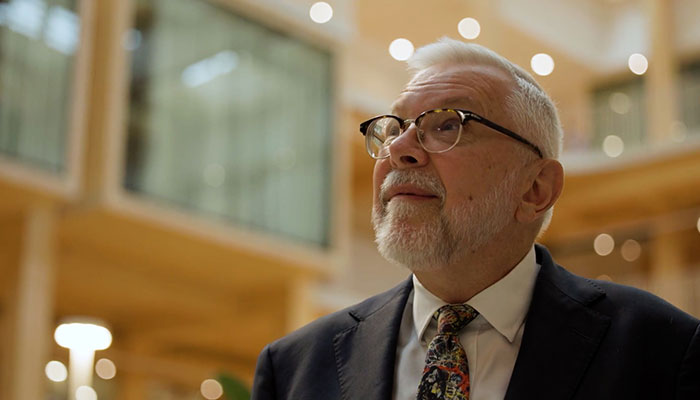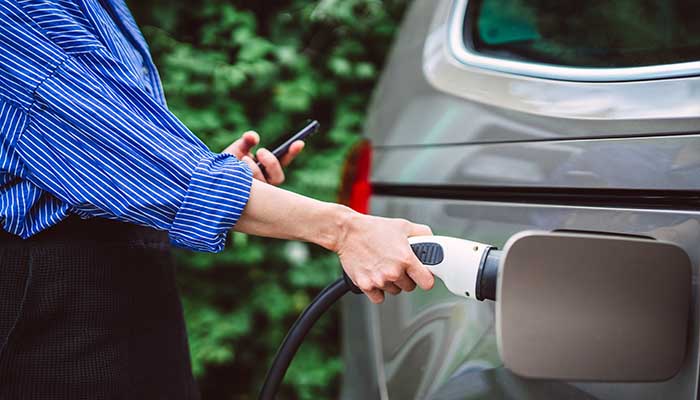When most people think of cannabis, the first thing that comes to mind is probably its illicit form, commonly known as marijuana.
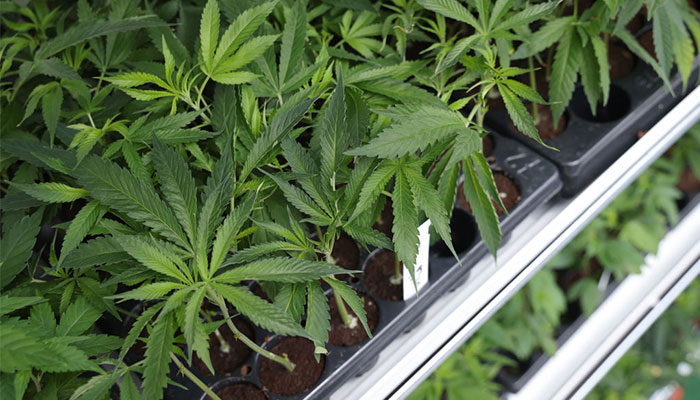
Despite widespread usage, this form of cannabis remains illegal in Australia and is classified as a prohibited substance, in the same category as heroin, cocaine and MDMA.
However, there is another form of cannabis that was legalised in Australia in 2016.
Medicinal cannabis contains one or more of the active compounds in the cannabis sativa plant, known as cannabinoids. These include the psychoactive compound tetrahydrocannabinol (THC), which produces the ‘high’ associated with cannabis, and the non‑psychoactive cannabidiol (CBD).
Cannabis products, and access to them, vary depending where in the world you live, and what we can access in Australia may be quite different from what is available in the United States.
The US market for CBD products is booming. In 2023, it was worth about US$7.6 billion, and there are predictions it could reach $36 billion a year by 2033.
Recreational cannabis is now legal in 23 US states, and in these states, products such as gummies, oils and tinctures containing low doses of THC or CBD are available over the counter, and even in some supermarkets.
Interest in medicinal cannabis as a potential treatment for insomnia has been gaining momentum, largely based on anecdotal reports from regular users of illicit cannabis that it improved their sleep ...
No state in Australia has legalised recreational cannabis, but medicinal cannabis products are available on prescription.
Two cannabinoid medicines – Epidyolex and Sativex, which treat epilepsy and muscle stiffness in multiple sclerosis respectively – have been through the Therapeutic Goods Administration’s standard regulatory approval procedures to assess their safety and efficacy.
Hundreds of other medications containing cannabinoids fall into the category of unapproved therapeutic goods, and can be prescribed through the special access and authorised prescriber schemes.
Since medicinal cannabis became legal, 300,000 Australians have accessed it via the special access scheme, and around 1.5 million scripts have been provided through the authorised prescribe scheme. Sleep is the third-most common reason for prescription, after pain and anxiety.
Unlike illicit cannabis, which contains unpredictable amounts of a number of different cannabinoids and other compounds, the production of medicinal cannabis is closely regulated, with the resulting medications containing consistent proportions of THC and/or CBD.
While it is legal and available, it is expensive, with CBD oil costing up to $250 for a 25ml bottle.
Medicinal cannabis for insomnia
About 30 per cent of Australian adults are estimated to have some form of insomnia, with about half of those people suffering from chronic insomnia that lasts for three months or more.
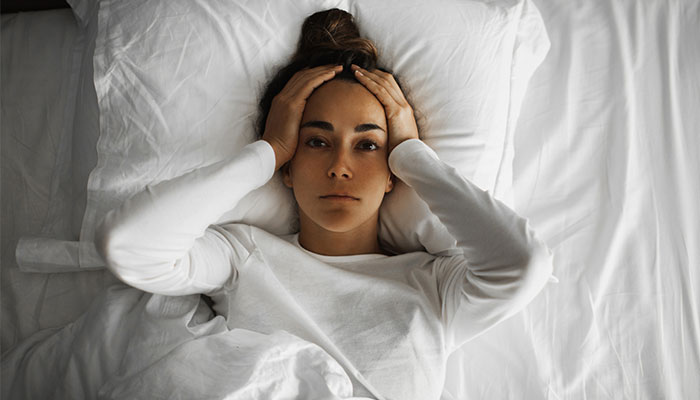
Sleeping pills may offer relief in the short term, but none are recommended for use as a long-term option due to side effects and the likelihood of addiction. In recent years, cognitive behavioural therapy developed specifically for insomnia (CBT-i) has become the recommended first-line treatment for the condition.
Interest in medicinal cannabis as a potential treatment for insomnia has been gaining momentum, largely based on anecdotal reports from regular users of illicit cannabis that it improved their sleep or enabled them to get more sleep.
There is, however, little in the way of robust scientific evidence to prove this. At the same time, this evidence is difficult to collect because of legislative requirements.
There have so far been no head-to-head trials comparing cannabis against other medications for sleep, and very few placebo-controlled trials.
Several studies were carried out in the 1970s involving people who habitually used illicit cannabis, but there is no evidence that these results can be translated to the wider community or to people with insomnia.
More recently, trials have been done – including by my team at the Woolcock Institute of Medical Research – focusing on medicinal cannabis. Most of these newer trials have had relatively small cohorts of participants, usually 30 or fewer at a time.
One recent study by my team looked at the effects of medicinal THC and CBD on how long participants with insomnia disorder slept. Contrary to the anecdotal reports, our findings showed people were getting an average of 25 minutes less sleep when using medicinal cannabis and a lot of this was accounted for by less REM sleep per night.
Several trials have also been carried out in Australia looking at low-dose CBD-only products (150mg or under) for insomnia and other conditions such as anxiety. To date, no evidence has been published to prove them to be effective. This may indicate that higher doses are required, or that it is not effective at all.
The difficulty of conducting trials
Carrying out clinical trials involving cannabis products is difficult, and in some cases impossible, making it a challenging area to research.
Another of the cannabinoids, cannabinol (CBN), is already being marketed in the US for sleep. This is an oxidised form of THC, which garnered interest due to reports from cannabis users that older marijuana that had been exposed to the air made them sleepy.
Despite this interest, there is limited evidence that it is effective in insomnia disorder. Cannabis products are often considered ‘nutraceuticals’ in the US states where they are legal, putting them in the same basket as vitamin supplements. This also means they don’t need the same level of testing, evidence and approvals as medicines.
- Fighting back against Frankenwords, zombie nouns and gobbledygook: Celebrating plain language
- Can friendship and rivalry coexist?
But ironically, while individual US states can make their own laws regarding recreational and medicinal cannabis, cannabis is illegal for any use at the federal level. This becomes important when it comes to clinical trials of products containing cannabis, as these trials are also regulated at the federal level. This has made approvals difficult to get.
It is a similar story in Australia. Even though CBD and THC are classified as controlled drugs and able to be prescribed under certain circumstances, CBN remains a prohibited substance. This means clinical trials of CBN have greater restrictions, in the same way as a trial using MDMA would be.
All of this adds up to many anecdotes and a lot of interest, but very little hard evidence to show that cannabis does – or does not – have benefits for insomnia. Before we can make recommendations in the area, larger-scale, controlled trials are needed.
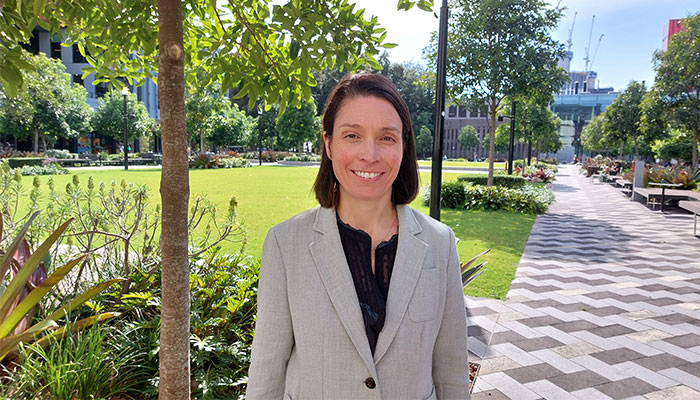
Dr Camilla Hoyos, pictured, will speak at the Sleep Talks October event.
Sleep Talks is a join initiative of the Woolcock Institute of Medical Research and Macqurie University.
Dr Camilla Hoyos is a National Heart Foundation Future Leader Fellow, a member of the Centre of Sleep and Chronobiology at the Woolcock Institute of Medical Research, and a Senior Lecturer in the Department of Health Sciences at Macquarie University.

